We study the condensation of closed string tachyons as a time-dependent process. In particular, we study tachyons whose wave functions are either space-filling or localized in a compact space, and whose masses are small in string units; our analysis is otherwise general and does not depend on any specific model. Using world-sheet methods, we calculate the equations of motion for the coupled tachyon-dilaton system, and show that the tachyon follows geodesic motion with respect to the Zamolodchikov metric, subject to a force proportional to its beta function and friction proportional to the time derivative of the dilaton.
Category: information science – Page 293

An Israeli Scientist Paves the Way to Alzheimer’s Cure, One Algorithm at a Time
Scientists at work in laboratory. Photo: Public domain via Wikicommons.
CTech – When chemistry Nobel laureate Michael Levitt met his wife two years ago, he didn’t know it would lead to a wonderful friendship with a young Israeli scientist. When Israeli scientist Shahar Barbash decided to found a startup with the aim of cutting down the time needed to develop new medicine, he didn’t know that a friend’s wedding would help him score a meeting with a man many want to meet but few do. But Levitt’s wife is an old friend of Barbash’s parents, and the rest, as they say, is history.
One of the joys of being an old scientist is to encourage extraordinary young ones, Levitt, an American-British-Israeli biophysicist and a professor at Stanford University since 1987, said in a recent interview with Calcalist. He might have met Barbash because his wife knew his family, but that is not enough to make him go into business with someone, Levitt said. “I got on board because his vision excited me, even though I thought it would be very hard to realize.”
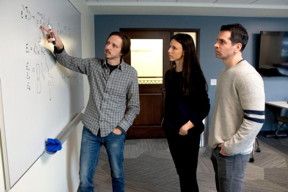
Virginia Tech researchers lead breakthrough in quantum computing
Abstract: The large, error-correcting quantum computers envisioned today could be decades away, yet experts are vigorously trying to come up with ways to use existing and near-term quantum processors to solve useful problems despite limitations due to errors or “noise.”
A key envisioned use is simulating molecular properties. In the long run, this can lead to advances in materials improvement and drug discovery. But not with noisy calculations confusing the results.
Now, a team of Virginia Tech chemistry and physics researchers have advanced quantum simulation by devising an algorithm that can more efficiently calculate the properties of molecules on a noisy quantum computer. Virginia Tech College of Science faculty members Ed Barnes, Sophia Economou, and Nick Mayhall recently published a paper in Nature Communications detailing the advancement.
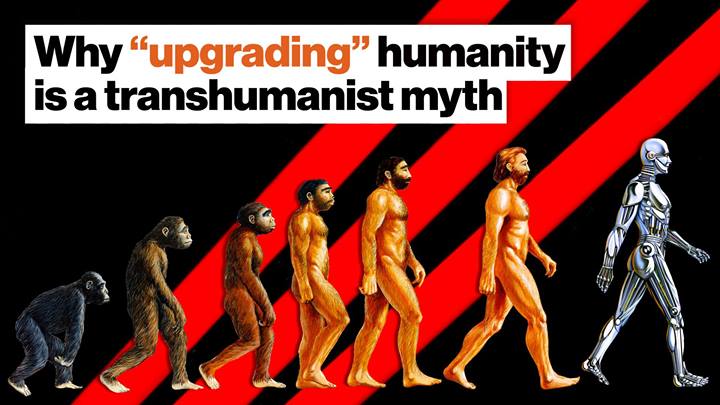
Why ‘upgrading’ humanity is a transhumanist myth
Click on photo to start video.
Though some computer engineers claim to know what human consciousness is, many neuroscientists say that we’re nowhere close to understanding what it is — or its source.
In this video, bestselling author Douglas Rushkoff gives the “transhumanist myth” — the belief that A.I. will replace humans — a reality check. Is it hubristic to upload people’s minds to silicon chips, or re-create their consciousness with algorithms, when we still know so little about what it means to be human?
You can read more about Rushkoff’s perspective on this issue in his new book, Team Human.

Microsoft, Google and the Artificial Intelligence Race
Microsoft and Google companies want to be central to the development of the thinking machine.
The decision by Microsoft to invest $1 billion in OpenAI, a company jointly founded by Elon Musk, brings closer the time when machines threaten to replace humans in any tasks that humans do today.
OpenAI, which was founded just four years ago, has pioneered a range of technologies which have pushed the frontiers of massive data processing in defiance of the physical and computer capabilities that governed such developments for generations.
Now, with the investment from Microsoft, the pace of technological change is likely to accelerate rapidly. Today, Artificial Intelligence is at a level of what is known as ‘weak AI’ and relies on humans to create the algorithms which allow for the crunching of massive amounts of data to produce new and often predictive results. Artificial General Intelligence, or Strong AI, will herald a new era when robots will essentially be able to think for themselves.

Reprogrammable self-assembly makes molecular computer
Researchers have designed a tile set of DNA molecules that can carry out robust reprogrammable computations to execute six-bit algorithms and perform a variety of simple tasks. The system, which works thanks to the self-assembly of DNA strands designed to fit together in different ways while executing the algorithm, is an important milestone in constructing a universal DNA-based computing device.
The new system makes use of DNA’s ability to be programmed through the arrangement of its molecules. Each strand of DNA consists of a backbone and four types of molecules known as nucleotide bases – adenine, thymine, cytosine, and guanine (A, T, C, and G) – that can be arranged in any order. This order represents information that can be used by biological cells or, as in this case, by artificially engineered DNA molecules. The A, T, C, and G have a natural tendency to pair up with their counterparts: A base pairs with T, and C pairs with G. And a sequence of bases pairs up with a complementary sequence: ATTAGCA pairs up with TGCTAAT (in the reverse orientation), for example.
The DNA tile.
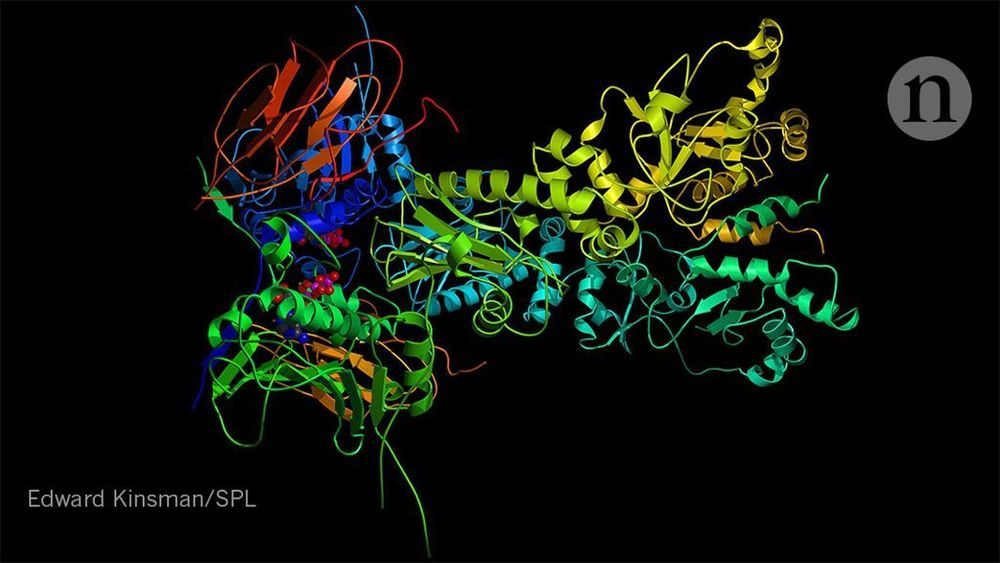
AI protein-folding algorithms solve structures faster than ever
More broadly, biologists are wondering how else deep learning — the AI technique used by both approaches — might be applied to the prediction of protein arrangements, which ultimately dictate a protein’s function. These approaches are cheaper and faster than existing lab techniques such as X-ray crystallography, and the knowledge could help researchers to better understand diseases and design drugs. “There’s a lot of excitement about where things might go now,” says John Moult, a biologist at the University of Maryland in College Park and the founder of the biennial competition, called Critical Assessment of protein Structure Prediction (CASP), where teams are challenged to design computer programs that predict protein structures from sequences.
Deep learning makes its mark on protein-structure prediction.
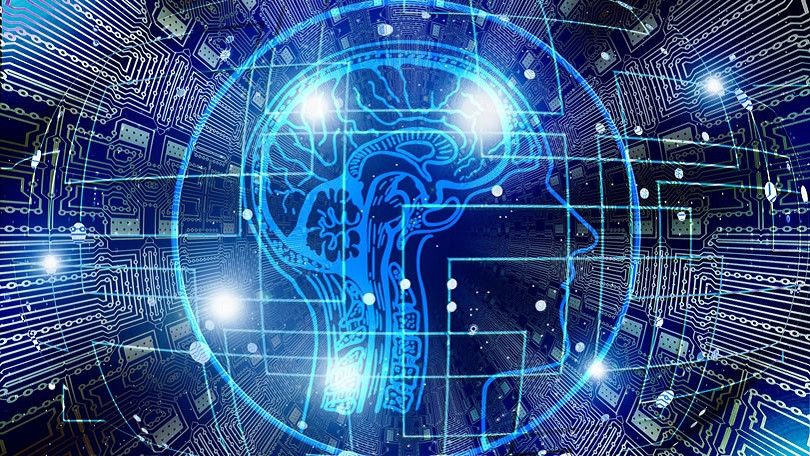
Microsoft Invests $1 Billion to Create a World-Saving AI
Whether or not creating an AGI is even possible remains up for debate. Meanwhile, others may cringe at the thought of an AI with the intellect to match and exceed humanity. However, OpenAI has been bullish on the prospect. The company points to the breakthroughs researchers have made in last decade in getting AI algorithms to recognize images, translate languages, and control robots. One of OpenAI’s own AI projects can write fiction like a human can (sort of).
However, creating new AI-based technologies costs a lot of money. Not only does it require programming, but also renting access to thousands of servers. So OpenAI has been seeking funding. “The most obvious way to cover costs is to build a product, but that would mean changing our focus. Instead, we intend to license some of our pre-AGI technologies, with Microsoft becoming our preferred partner for commercializing them,” Altman wrote in a separate blog post.
- The AI Breakthrough Will Require Researchers Burying Their Hatchets.
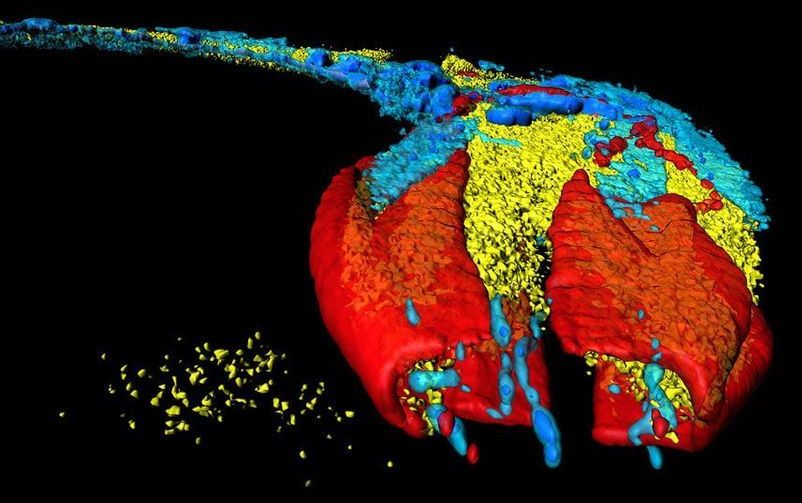
The First Complete Brain Wiring Diagram of Any Species Is Here
For a humble, microscopic worm with only 302 neurons, C. elegans has had a lot of firsts. It was the first multicellular animal to have its whole genome sequenced. It was also the spark that lit the connectome fire—the revolutionary idea that mapping the entirety of connections among neurons will unveil secrets of our minds, memory, and consciousness. And if the connectomists are to be believed, a map of individual brains may be the blueprint that will one day hurtle AI into human-level intelligence, or reconstruct an entire human mind in digital form.
More than 30 years ago, a pioneering group of scientists painstakingly traced and reconstructed the roundworm’s neural wiring by hand. The “heroic” effort, unaided by modern computers and brain-mapping algorithms, resulted in the first connectome in 1986.
Yet the “mind of the worm” map had significant lapses. For one, it only focused on one sex, the hermaphrodite—a “female” equivalent that can self-fertilize. This makes it hard to tell which connections are universal for the species, and which are dependent on sex and reproduction. For another, because the effort relied entirely on human beings who get tired, bored, and mess up, the map wasn’t entirely accurate. Even with multiple rounds of subsequent refinements, errors could linger, which would royally screw up any interpretation of results using these maps.
What if you were immune to chronic pain?
Our current approach to treating chronic pain is drug-based, but a vaccine-based approach can cut addiction out of the equation. In this video, Big Think contributor Lou Reese, co-founder of United Neuroscience, explains how soon we may soon be able to vaccinate people, en masse, against pain!